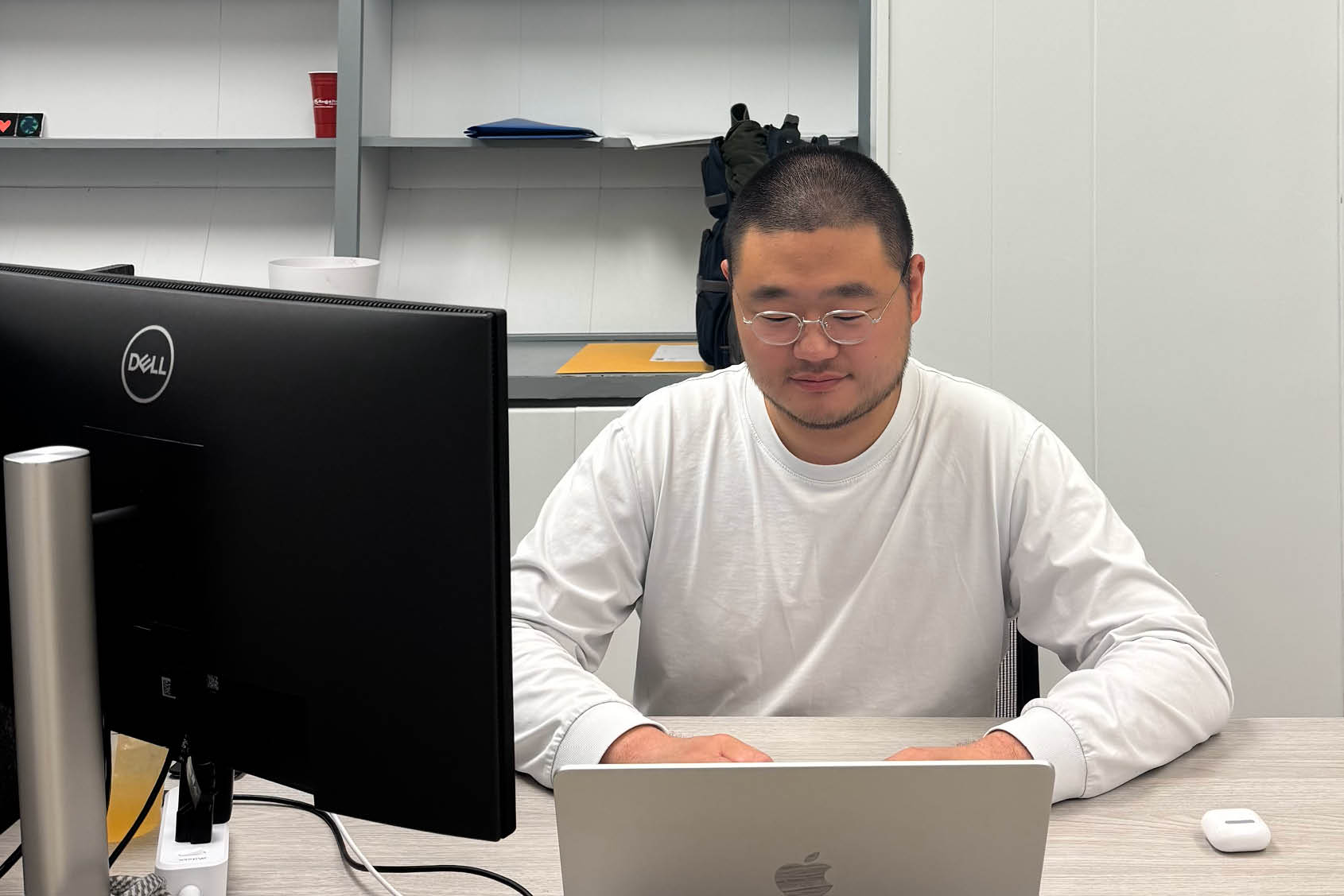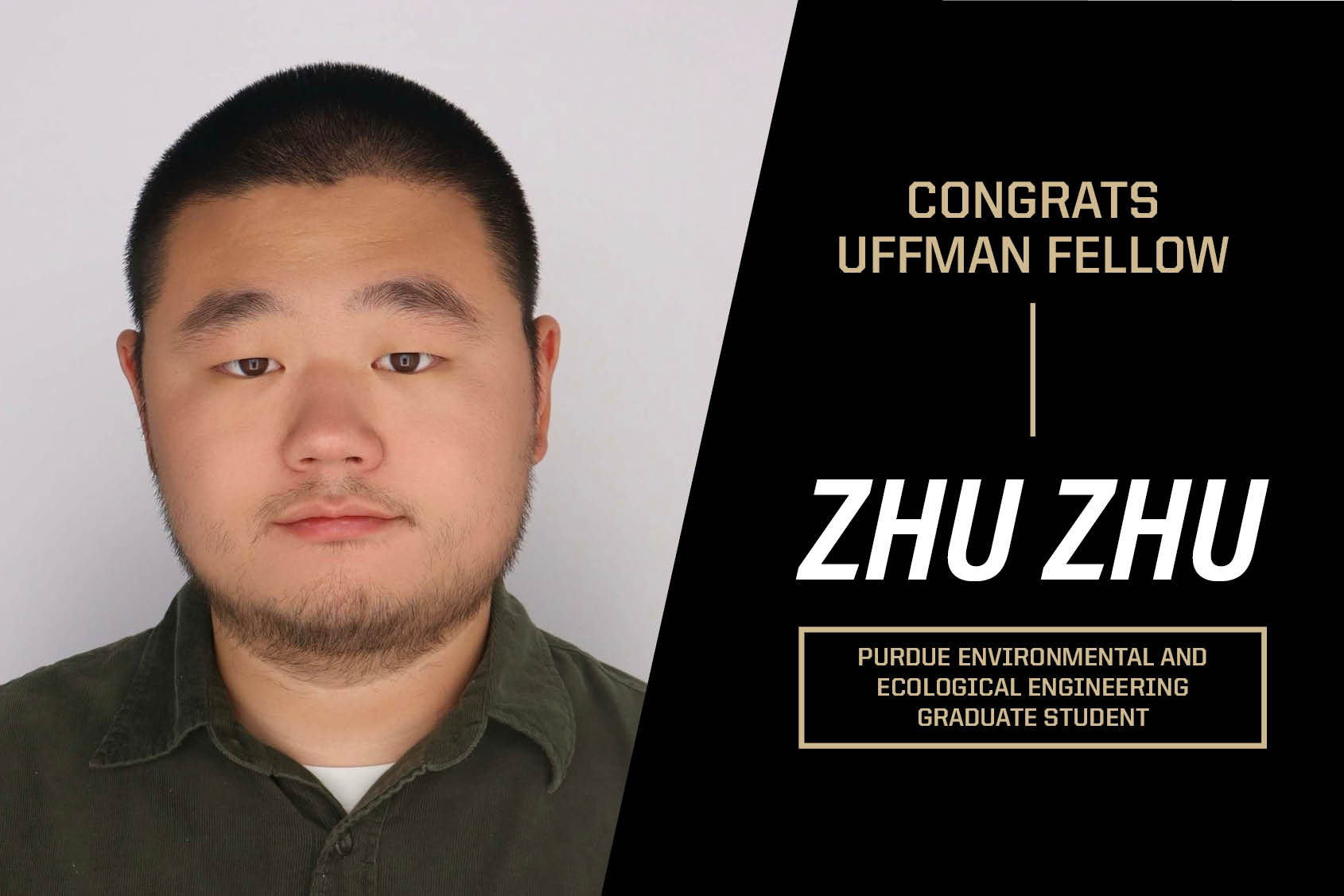Graduate Student Zhu Zhu Awarded Uffman Fellowship for Pioneering Work in Battery Sustainability
Zhu Zhu, a graduate student in Purdue University’s Environmental and Ecological Engineering (EEE) program, has been awarded the Uffman Fellowship to aid his research in sustainable energy systems and battery recycling.
For Zhu, the fellowship is more than just a financial award—it’s a milestone that affirms his commitment to environmental sustainability. “Receiving the Uffman Fellowship is truly an honor,” he said. “It provides recognition, confidence, and motivation to keep pushing forward.”
The William Uffman Graduate Student Fellowship is available only to Purdue Graduate Students in Herrick Labs and is awarded by the lab administrators.
Zhu’s research centers on life cycle assessment (LCA) of batteries, a critical area as the world transitions toward electrified transportation. His work evaluates the environmental impacts of batteries from manufacturing to recycling, aiming to guide more sustainable innovation in energy storage technologies.
Before focusing on batteries, Zhu published two journal papers applying LCA to household appliances and agricultural production. These early contributions laid the groundwork for his current research, which he hopes will influence both policy and consumer decision-making.
“The fellowship has given me the peace of mind to dive deeper into my research,” Zhu said. “It’s also boosted my confidence as a young researcher.”
Zhu’s passion for sustainability is rooted in his upbringing. His parents work in metal scrap recycling, and witnessing the environmental and economic value of resource recovery firsthand sparked his interest in waste management. That early exposure evolved into a career path through undergraduate and master’s studies, culminating in his current work at Purdue.
His current project compares the environmental impacts of various battery technologies, including emerging systems. “By providing a comprehensive and science-based assessment, this work can support consumers and policymakers in making more informed decisions,” he explained.

One of the biggest challenges Zhu has faced is data collection—a common hurdle in LCA research. He draws from sources like Argonne National Laboratory, peer-reviewed literature, and his own Python-based models. Despite having limited coding experience at the outset, Zhu taught himself the necessary skills, crediting his advisor, Professor Rebecca Ciez, for her guidance and support.
“Professor Ciez has been instrumental in my development,” Zhu said. “She emphasized transparency in research and helped me build a strong foundation in modeling and analysis.”
Zhu also credits Purdue’s rigorous coursework and collaborative environment for shaping his academic journey. “The support from my peers and the mentorship I’ve received have been invaluable,” he said.
Looking ahead, Zhu plans to remain in academia, continuing his research in environmental sustainability. He sees his work playing a vital role in the next decade as battery technologies evolve and the demand for sustainable energy solutions grows.
“Transportation electrification is one of the most important strategies for addressing climate change,” he said. “I hope my work can contribute by providing transparent, science-based insights that support sustainable decision-making.”
For aspiring graduate students and fellowship applicants, Zhu offers this advice: “Stay open-minded and be willing to step outside your comfort zone. Exploring new fields and methods can broaden your perspective in unexpected ways.”
Reflecting on his journey, Zhu has no regrets. “Even the mistakes have taught me valuable lessons,” he said. “I strive to always move forward and apply what I’ve learned to make better choices in the future.”
Congratulations, Zhu!

